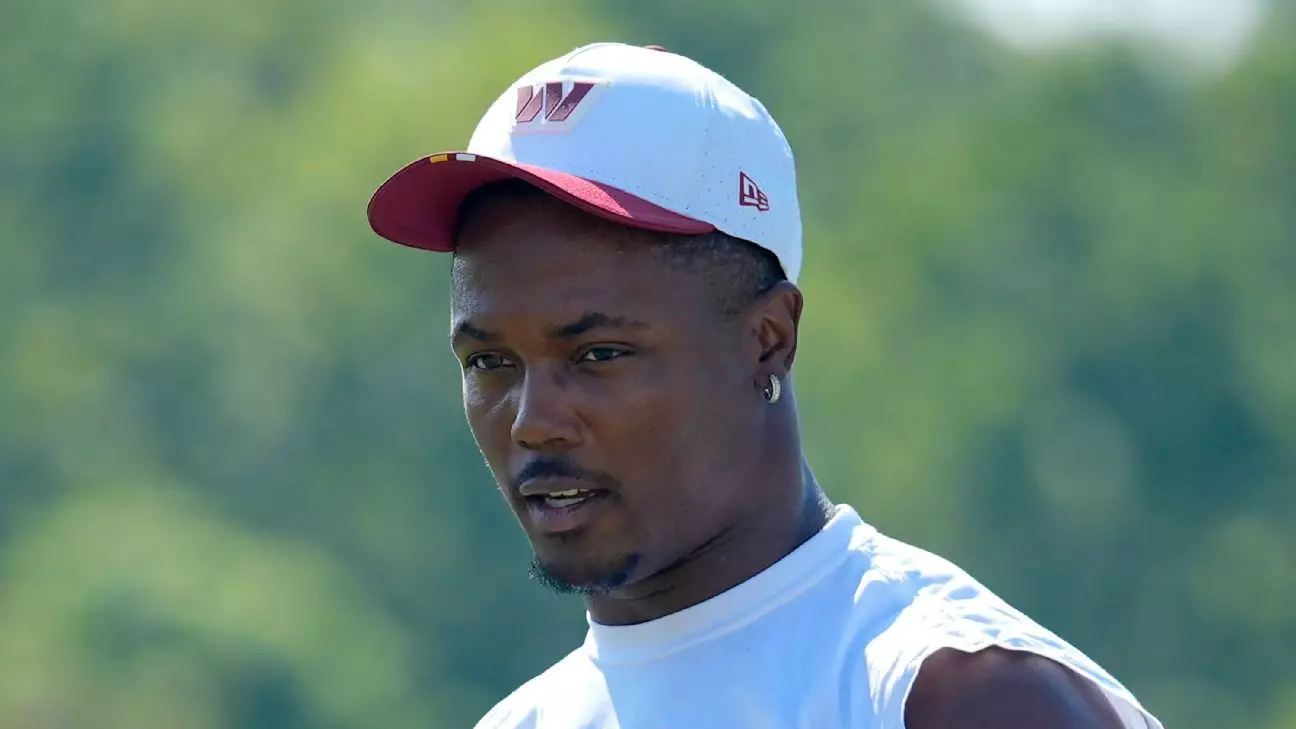In the high-stakes world of professional sports, contractual disputes are often seen as routine business rather than the serious impediments they truly are to player trust and league credibility. The recent tensions between the Washington Commanders and star receiver Terry McLaurin shed light on a wider issue: how financial disagreements and management’s seemingly rigid stance can chip away at the core values of loyalty, fairness, and mutual respect that should underpin professional sports. McLaurin, a rising star with a proven track record, finds himself caught in a web of negotiations that are increasingly damaging to his reputation and to the league’s social contract with its athletes.
This situation exemplifies a disturbing pattern where players, despite their contributions on the field, are often undervalued and treated as commodities whose worth is dictated solely by dollar signs. McLaurin’s frustration, as expressed publicly, reveals a profound disconnect: a player who has repeatedly demonstrated commitment and excellence, yet who faces an uncertain future due to contractual gridlock that appears more rooted in management’s reluctance than player performance or market realities. Such disputes not only threaten the morale of individual athletes but also tarnish the league’s image as a fair and player-centered enterprise. Fans, especially younger ones, increasingly scrutinize the fairness of the sport they love, and these disputes risk diminishing public trust.
Economic Power Imbalances and the Erosion of Player Protections
At its core, the issue revolves around the economic power imbalance between franchise owners and individual players. Washington’s reluctance to meet McLaurin’s valuation, especially considering his recent on-field success, underscores a systemic problem: owners often prioritize profit margins over societal acknowledgment of athletes’ contributions. McLaurin’s desire for a fair valuation—drawing inspiration from counterparts like DK Metcalf—is not merely about financial greed but about recognition of his value and a sense of security. The league’s culture, which often minimizes the importance of individual player health and morale, is complicit in this dynamic.
This situation also exposes the fragile protections afforded to NFL players—an enormous contrast to other professional sports. Players are often treated as disposable, their careers and personal commitments secondary to ownership’s financial calculus. McLaurin’s publicly expressed frustration, coupled with his decision to stay sidelined during practices, sends a powerful message: players are no longer willing to accept being undervalued without consequence. Their continued loyalty should not be taken for granted. Instead, the league must start prioritizing equitable negotiations and honoring the contributions of its athletes, recognizing that without players, there is no league.
Implications for the Future of Player-Management Relations
This ongoing dispute signals a troubling trend for the future. If star players like McLaurin are willing to publicly voice discontent, it sets a precedent that athletes are more willing to challenge management’s authority—a potentially positive development in fostering more equitable negotiations. However, it also risks instigating a cycle of mistrust and instability that could destabilize team dynamics and fan engagement. When players begin to perceive their worth as bargaining chips rather than partners, the integrity of the sport itself is undermined.
The league must confront these issues head-on, fostering a more transparent and respectful dialogue between players and management. McLaurin’s case is emblematic of a broader movement demanding recognition—not just monetary but also emotional and professional respect. Players like him are more than just assets; they are the face of the sport and its future. The league’s success depends on its ability to balance profits with genuine investment in its athletes’ well-being and careers. Without meaningful reform and a shift toward valuing players beyond their stats and contract negotiations, the sport risks alienating its most vital contributors—its athletes—and damaging its reputation for years to come.

